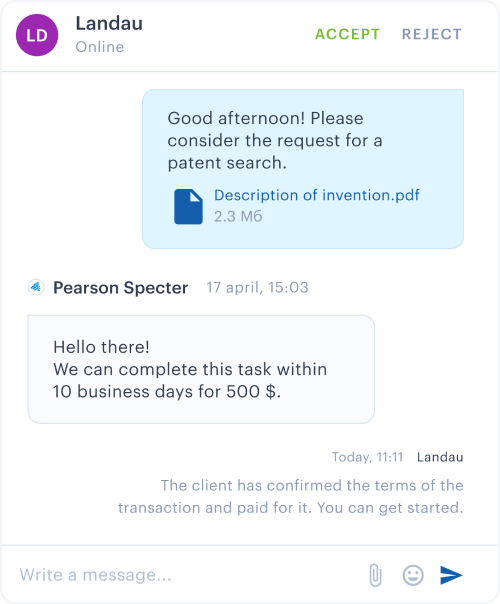Empowering Innovation: Smart IP for Tech Companies
In the fast-evolving digital landscape, IP for tech companies has become a foundational element of sustainable growth and market differentiation. Whether you're a startup launching its first product or a scaling technology company entering global markets, managing property strategically is essential to protect innovation and stay ahead of the competition.
From code to hardware, from algorithms to user interfaces, intellectual property lies at the heart of every technology-driven business. However, traditional IP management often lacks the flexibility and speed needed to match the pace of the industry. That’s where modern solutions come into play — bringing automation, transparency, and cost efficiency into the equation.
Why Management Matters for Startups and Technology Innovators
Innovative businesses operate under immense pressure to deliver cutting-edge solutions, attract investment, and protect competitive advantages. A comprehensive IP strategy ensures that all innovations are legally secured, commercially leveraged, and future-proofed. Key benefits include:
- Faster protection of ideas through simplified filing and tracking
- Clear ownership of inventions and branding assets
- Improved investor confidence via a strong portfolio
- Global scalability with streamlined multi-jurisdictional processes
- Cost-effective management that supports long-term growth
Technology ventures face unique challenges — limited legal resources, tight timelines, and the need for agility. Centralized platforms help solve these issues by simplifying complex processes and offering access to expert support at every stage.
Key Features of Solutions for Technology Startups
Platforms like iPNOTE offer a next-generation approach to coordination tailored specifically for the technology sector. These tools enable companies to handle registrations, filings, and renewals across multiple jurisdictions without relying on costly intermediaries.
Here’s what technology innovators gain by adopting modern platforms:
- All-in-one dashboard for patents, trademarks, and designs
- Transparent pricing with no hidden fees or overcharges
- Access to verified professionals in over 100 countries
- Real-time progress tracking and document storage
- Automated deadline notifications to avoid costly delays
- Customizable workflows to suit your business structure
This approach helps technology entrepreneurs and in-house teams stay focused on development while their intellectual property stays protected and aligned with business goals.
Streamlining Global Strategy for Technology Companies
Today’s technology companies don’t operate within borders. As soon as a digital product goes live, it becomes accessible — and vulnerable — worldwide. This requires a smart management system that adapts to multi-country strategies, legal nuances, and industry standards.
By using platforms like iPNOTE, startups can:
- Monitor competitors’ filings in global markets
- File international patents and trademarks with a few clicks
- Avoid duplication and inconsistent filings across jurisdictions
- Stay compliant with local regulations
- Generate reports for stakeholders and internal audits
These benefits help your technology team act with confidence when scaling into new markets or preparing for acquisitions, licensing, or joint ventures.
How iPNOTE Supports Startups with Coordination
iPNOTE offers a powerful digital ecosystem designed specifically for managing IP for tech companies. From idea to registration and beyond, the platform simplifies every step. Firms and established technology brands alike can:
- Reduce legal expenses by up to 60%
- Collaborate with attorneys worldwide through a single platform
- Access pre-verified experts in patent, trademark, and design law
- Manage multiple applications from one intuitive interface
- Receive ongoing support without unnecessary paperwork
Whether you're working on AI algorithms, biotechnology devices, SaaS platforms, or clean technology innovations, iPNOTE provides the infrastructure needed to keep your intellectual assets secure and ready for monetization.
Final Thoughts
IP for tech companies is more than just legal protection — it’s a growth strategy. For every firm building the next big thing or technology company expanding its global reach, having a smart, scalable, and cost-effective management system is critical.
As innovation accelerates and competition intensifies, platforms like iPNOTE ensure that your most valuable assets are not only protected but fully optimized for success.
























































